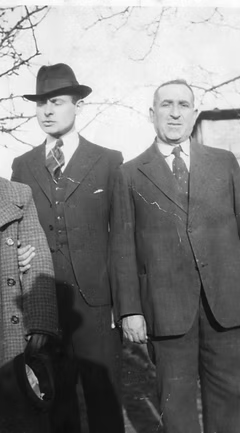DAVID PRZEDECKI
- Home
- DAVID PRZEDECKI
Family Histroy
Family story of David per Michael Pizer interview:
M: I had a brother he was in the army, also, fighting Hitler. He was blonde, so he could pass as a gentile, and that’s how he saved his life, as a gentile. He was working for four years on a German farm, and he had it pretty good. But, by the end, there was a Pole, and he squealed on him that he was a Jew. And, TWO days before the American army came in, they killed him. The other brother was the second of the oldest, he was in the war, but they did let him go home, because he was married, and he had two children. But, after, when they started to liquidate the people who lived in town, they made ghettos for them, and after awhile they sent them away to concentration camps, and they stayed there as long as they could work. By the end, if they stopped working, if they couldn’t work anymore, they killed them. When I came back to Poland, at that time, I knew where my parents perished, and we went over there.
J: Where was that?
M: That was in the city Chelmno. Over there, they were gassed, and they were burned. This was Chelmno.
In 2015, David Przedecki POW documents were presented to Judy Muratore from Theresa Polin USHMM curator, also presented to Judy Muratore from Aleks Loza, Klodawa researcher in Posnan, Poland. Accoriding to both, and confirmed by these photos and documentation, David was captured by the Germans and sent to the Altengrabow POW camp where he died. Per Theresa Polin, this camp was partcularly harsh on all POW’s.
Letter
LETTER BELOW FROM MENASHE PRZEDECKI, [JUDY MURATORE'S GRANDFATHER, DAVID'S BROTHER] DATED APRIL12, 1936, SHORTLY BEFORE THE ABOVE ARMY PHOTO WAS SIGNED JULY 8, 1936.
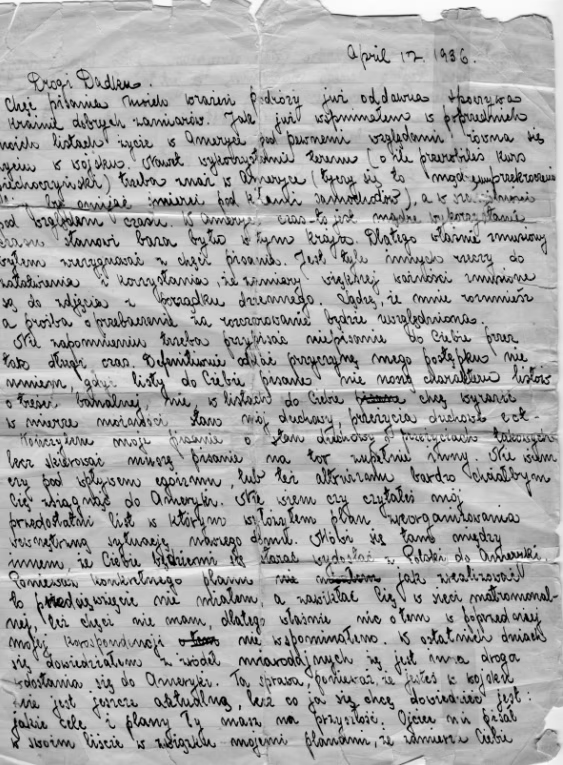
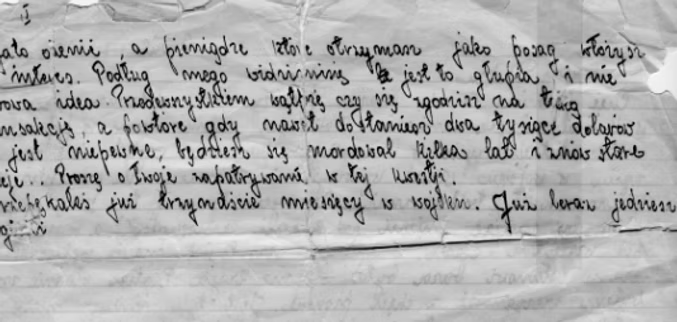
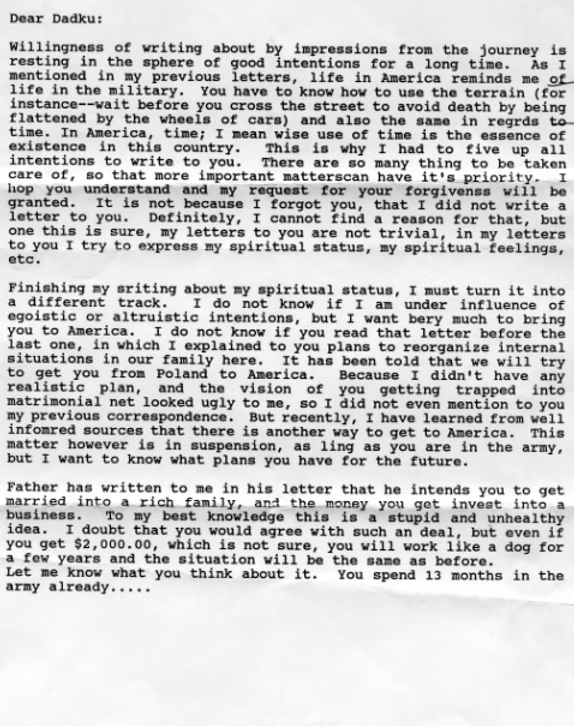
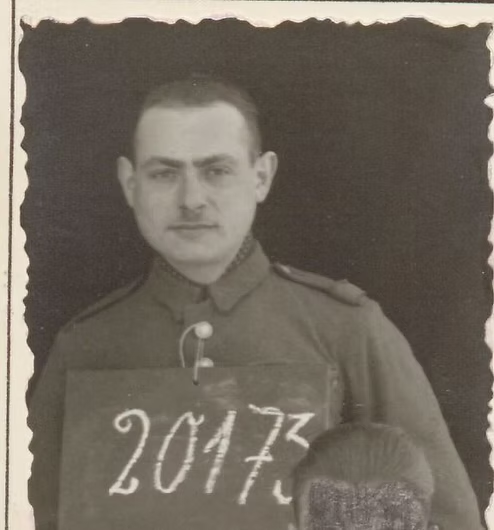
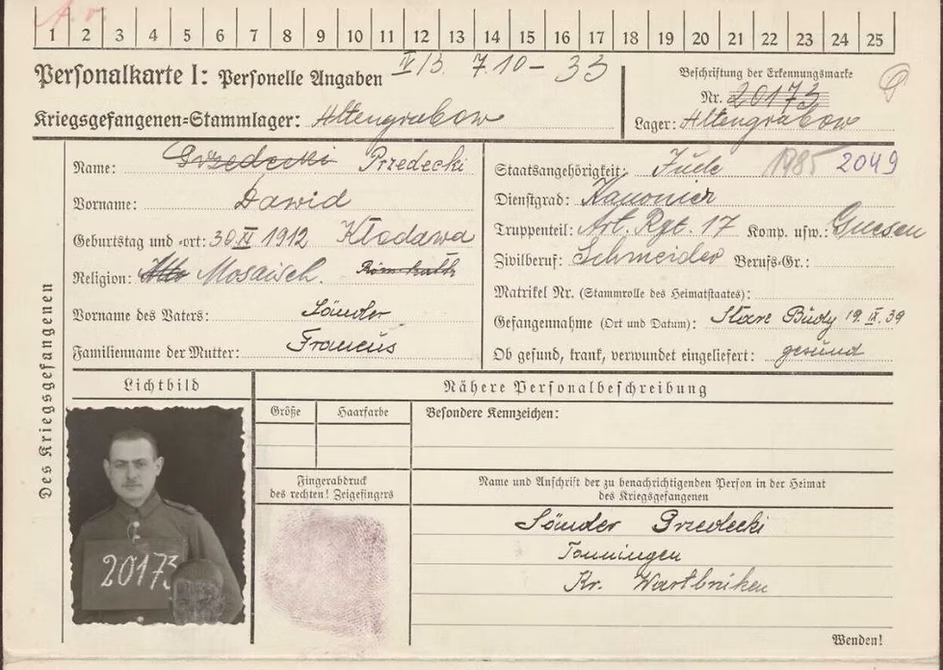
Time may pass, but memory remains.
In silence, we hear their voices.
In remembrance, we find meaning.


